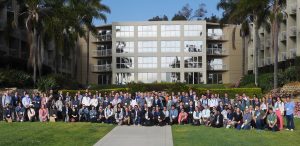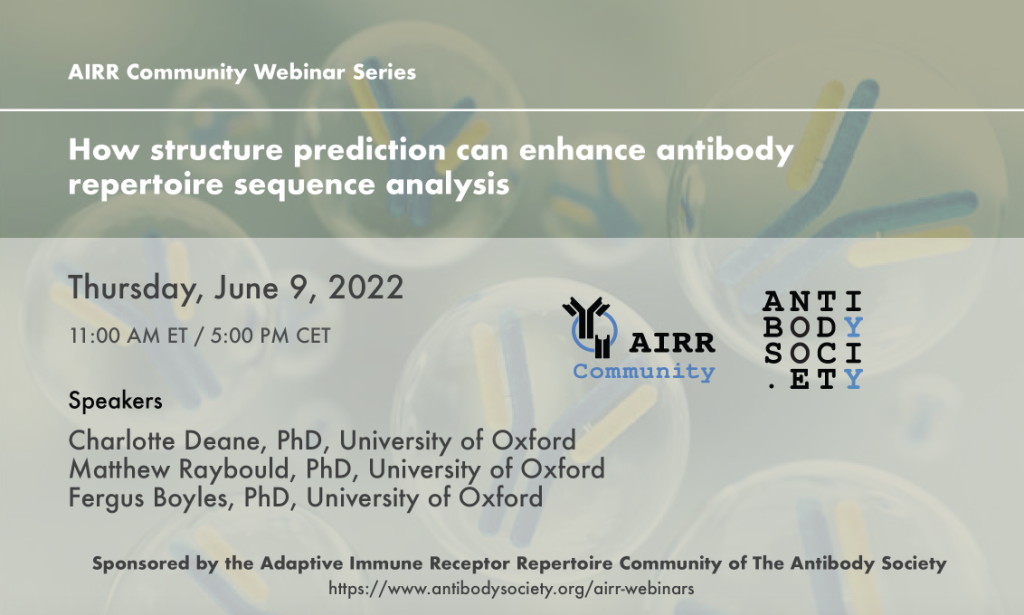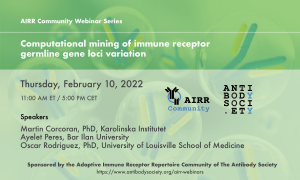The AIRR-C “raison d’etre” is the standardization of AIRR-seq data and its associated metadata, related software tools, pipelines and repositories, etc., as well as efforts aimed at other users, institutions, agencies, journals, and societies to promote international efforts to optimize FAIR practices: making data Findable, Accessible, Interoperable, and Reusable! Similarly, the spirit of accessibility of data, and training, equally applies to individuals from diverse backgrounds, including those from under-represented groups. Using these premises as inspiration the sixth AIRR-C meeting theme “Exploring New Frontiers” was established.
The sixth AIRR Community Meeting (#AIRRC6) was held in La Jolla, CA from May 17-19, 2022. The meeting had two themed “Challenge Sessions” meant to: (i) Initiate and implement a strategic plan for the AIRR Community that integrates the Working Groups’ activities toward the central goal of universally accepted AIRR-seq data standards; (ii) Introduce the Community to multidimensional systems approaches for characterizing immune responses, and how AIRR-seq data can benefit such approaches.
Meetings and presentations took place at the Hilton La Jolla Torrey Pines as well as virtually. The meeting provided opportunities for investigators and trainees to network, to participate in AIRR Community Working Groups and Sub-committee meetings, to participate in poster sessions, to attend software tool demonstrations and tutorials, to participate in student mentoring sessions and matchups and to attend an industry networking reception with a “hot topics in the field” round table session. We were delighted to have such an incredible turnout of industry collaborators and wish to extend our sincere thank you to our generous sponsors.
AIRR Community Meetings are the premier event for research on adaptive immune-receptor repertoires. They are also the primary location where the AIRR Community’s Working Groups and Sub-committees come together in one location to discuss how to push standardization in AIRR-sequencing (AIRR-seq) data and analysis forward. For complete details about AIRR-C Meeting VI check out the final meeting booklet and the video recordings on the AIRR-C YouTube channel.
Just like the biology of immune repertoires is high-dimensional, this meeting’s success was as well! We gathered some of the numbers that best describe the success of the AIRR-C VI meeting.
- 4 Keynote speakers: Dennis Burton (Scripps Research), Gunilla Karlsson Hedestam (Karolinska Institutet), Shane Crotty (La Jolla Institute for Immunology) Atul Butte (University of California, San Francisco)
- 144 in person attendees, 89 remote attendees, 20 countries represented
- 13 Invited speakers, 6 contributed talks
- 45 posters, 8 lightning demos, 6 deep dive tutorials
- 5 hot topics in the field discussions
- 19 sponsors – 5 gold, 5 silver, 7 bronze, 2 institutional
- 8 NIH travel award recipients
A big thank you again to our meeting sponsors for their generous sponsorship and engagement and to the AIRR-C Meetings Sub-committee members for their tireless effort in creating such an exceptional event.
Looking forward to AIRR-C Meeting VII – rumour has it that it will be in Europe in Spring 2024!





